Join us for a new season of on-line sessions bringing together simulators young in years or at heart.
Mixed-Gen was first imagined as a venue for PhD students and young researchers to share their work, get expert feedback and have an opportunity to strengthen their scientific relations when in person meetings were impossible due to CoVid. As we return to more normal interactions, very positive feedback from the community convinced us of the ongoing value of this idea and so…here we are again!
Each session of the series will have two parts. In the first, a Zoom broadcast, an experienced scientist will present an advanced topic in different areas of simulation and modelling, followed by young members of the community describing their work in the same area. All talks will be publicly accessible. In the second part, we shall move to a virtual poster session on GatherTown where more PhD students and researchers in their first post-doc will present pertinent projects to the session’s speaker and other (surprise) expert guests that will join us to interact and share their thoughts on exciting new science. Registration is required to participate to this second part.
We are happy to announce that some academic institutions have decided to grant credits to students who follow the full season. Get in touch, if you wish to explore this collaboration also for your institution.
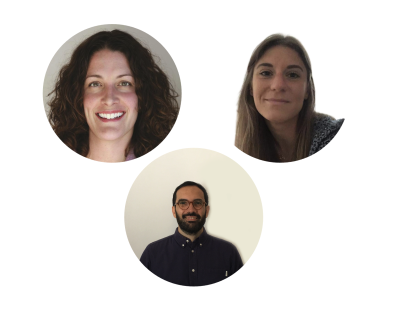
Season 3 - Session 7: Computational methods in biophysics for applications to drug discovery
1 June 2023, 15:00-19:00 CEST
Rommie Amaro - University of California, San Diego
In Situ Dynamics Reveal Unseen Vulnerabilities of Viral Glycoproteins
Giulia Paiardi - University of Heidelberg
The role of heparin in spike SARS-CoV-2 infection: from a model for heparan sulfates to a starting structure for antivirals
Mattia Bernetti - Istituto Italiano di Tecnologia
Using molecular simulations towards RNA targeting with small molecule drugs
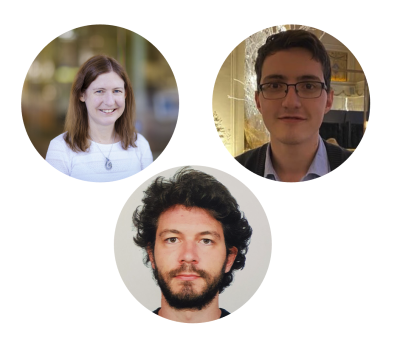
Season 3 - Session 6: Simulation and modelling of non equilibrium systems
27 April 2023, 15:00-19:00 CEST
Debra Bernhardt - The University of Queensland
Nonequilibrium molecular simulation: predicting results when theories don’t exist
Benjamin Sorkin - Tel Aviv University
Universal relation between entropy and kinetics
Pasquale Digregorio - University of Barcelona
Active turbulence and topological defects in nematic liquid crystals
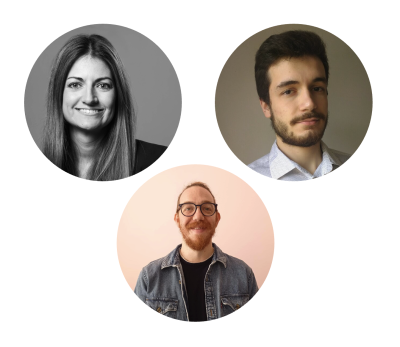
Season 3 - Session 5 : Data science in biophysics for applications to drug discovery
23 March 2023, 15:00-19:00 CET
Zoe Cournia - Academy of Athens
Predicting protein-membrane interfaces using molecular simulations and ensemble machine learning
Maurice Karrenbrock - University of Geneva
A nonequilibrium alchemical method for drug-receptor absolute binding free energy calculations: the role of restraints
Francesco Di Palma - Italian Institute of Technology
Unravelling the Ribosome stalling mechanism induced by the human XBP1u arresting peptide
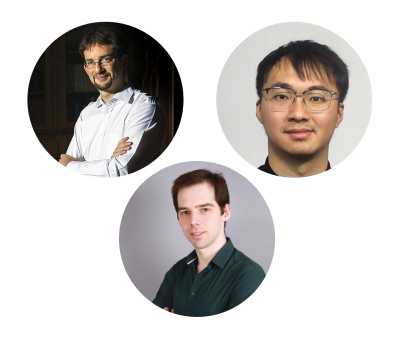
Season 3 - Session 4: Simulation and modelling of electrochemical interfaces and capacitors
23 February 2023, 15:00-19:00 CET
Benjamin Rotenberg - Sorbonne University
Electrode/electrolyte interfaces: from electronic response to interfacial structure, dynamics and thermodynamics using classical molecular dynamics simulations
Mouyi Weng - EPFL
First-principles barrier simulations with implicit solvation model and electro-chemical potential
Geoffrey Monet - ENS Paris
Unified non-equilibrium simulation methodology for flow through nanoporous carbon membrane
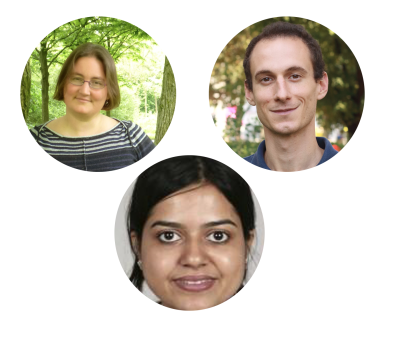
Season 3 - Session 3: Soft matter and machine learning
26 January 2023, 15:00-19:00 CET
Laura Filion - Utrecht University
Soft matter and machine learning
Alessandro Coretti - University of Vienna
Learning mappings between equilibrium states of liquid systems using normalizing flows
Atreyee Banerjee - Max Planck Institute for Polymer Research
Glass Transition in Polymer Melts using Data-driven Methods
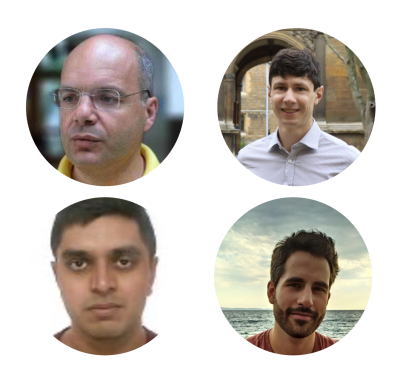
Season 3 - Session 2: Theory and numerical simulation of transport processes in condensed matter
15 December 2022, 15:00-19:00 CET
Stefano Baroni - SISSA, Trieste
Gauge invariance of transport coefficients: fathoming heat transport from the struggle to simulate it
Michele Simoncelli - University of Cambridge
Quantum thermal transport in solids: coherences, disorder, and viscosities
Shiva Darshan - Ecole des Ponts, ParisTech
Sticky coupling as a control variate for the computation of transport coefficients
Paolo Pegolo - SISSA, Trieste
Topology, oxidation states, and charge transport in ionic conductors
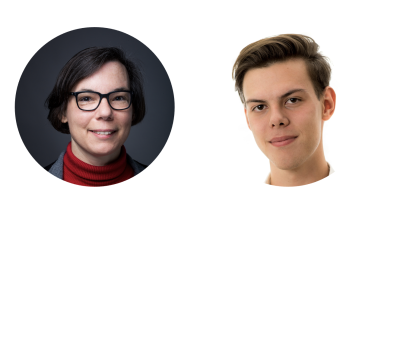
Season 3 - Session 1: Simulating complex oxides
24 November 2022, 15:00-19:00 CET
Silke Biermann - École Polytechnique, Palaiseau
Correlated Transition Metal Oxides -- New Twists to Old Problems
Peter Mlkvik - ETH Zurich
Influence of Ge substitution on the structural and electronic stability of the competing VO2 phases
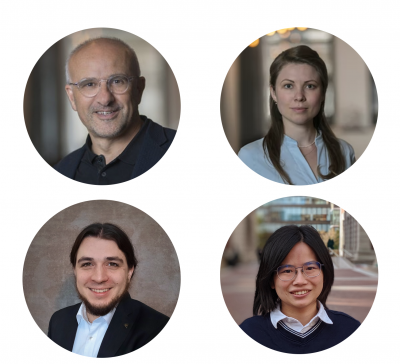
Season 2 – Session 4: Simulating quantum materials
7 July 2022, 15:00-19:00 CEST
Antoine Georges - Collège de France, Paris and Flatiron Institute, New York
Electronic Structure of Quantum Materials with Strong Correlations: A Dynamical Mean-Field Theory Perspective
Sophie Beck - Flatiron Institute, New York
Ab initio description of strongly correlated materials: combining density functional theory and dynamical mean-field theory
Jannis Ehrlich - Fraunhofer IWM
Dynamical Mean Field Theory on a Quantum Computer
Petra Shih - Columbia University
Anharmonic lattice dynamics from vibrational dynamical mean-field theory
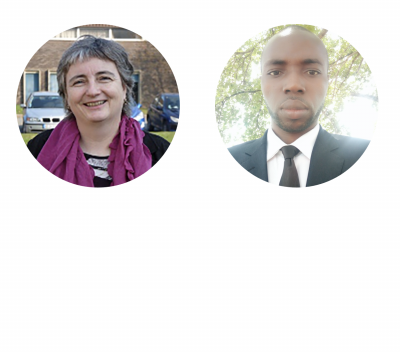
Season 2 – Session 8: Electronic energies beyond Density Functional Theory
9 June 2022, 15:00-19:00 CEST
Lucia Reining - École Polytechnique, Palaiseau
Strategies to deal with the many-body problem in materials: a unified view on functionals
Jean Baptiste Fankam Fankam - University of Yaounde I
Theoretical investigation of the molecular structure, vibrational spectra, thermodynamics and non linear optical properties of 4,5-dibromo-2,7-dinitro-Fluorescein
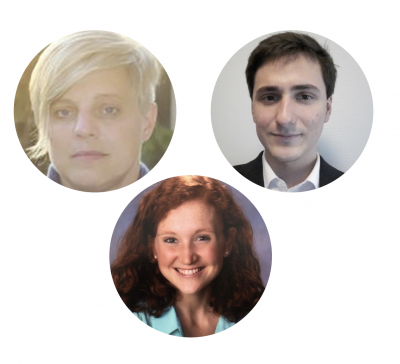
Season 2 – Session 7: Simulating non-equilibrium phenomena and rare events
28 April 2022, 15:00-19:00 CEST
Tanja Schilling - University of Freiburg
How to build a theory for a coarse-grained system out of equilibrium
Régis Santet - Ecole des Ponts
Unbiased sampling of HMC schemes for non separable Hamiltonian systems
Jeanine Shea - Johannes Gutenberg University Mainz
Passive particle in an active bath: can we tell it is out of equilibrium?
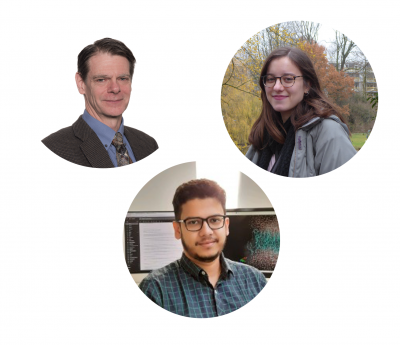
Season 2 – Session 6 Simulating biological systems
31 March 2022, 15:00-19:00 CEST
Benoit Roux - The University of Chicago
Using Computer Simulations to Advance our Understanding of Biological Systems at the Atomic Level
Beatriz Piniello Castillo - University of Barcelona
Asparagine tautomerization in glycosyltransferase catalysis. The molecular mechanism of protein O-fucosyltransferase 1
Saumyak Mukherjee - Ruhr University Bochum
Entropy of water in protein condensates
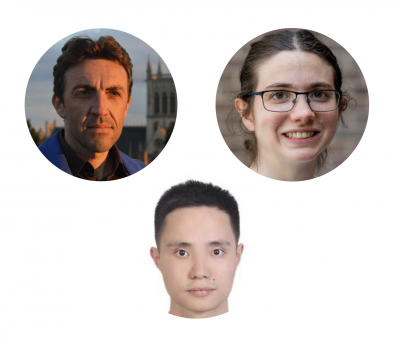
Season 2 – Session 5: Simulating glasses
24 February 2022, 15:00-19:00 CET
Ludovic Berthier - University of Montpellier
Perspectives for the next generation of glass transition studies
Grace Sommers - Princeton University
From hard spheres to hard-core spins
Chengjie Luo - Eindhoven University of Technology
Many Body Correlations Are Non negligible in Simple Glassformers
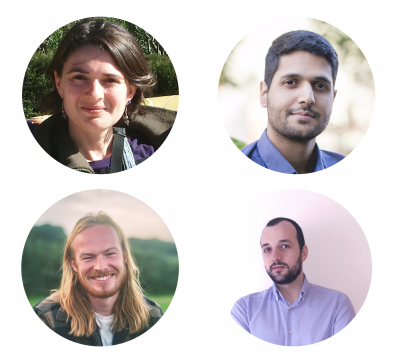
Season 2 – Session 3: Simulating colloidal systems
16 December 2021, 15:00-19:00 CET
Emanuela Zaccarelli - La Sapienza University, Rome
Anomalous slow dynamics in soft matter
Asaf Szulc - Ben-Gurion University
Cooperative effects driving the multi-periodic response of cyclically sheared amorphous solids
Fergus Moore - University of Bristol
Crystallisation and polymorph selection in active Brownian particles
Luca Tonti - University of Manchester
Diffusion of globular macromolecules in liquid crystals of colloidal cuboids
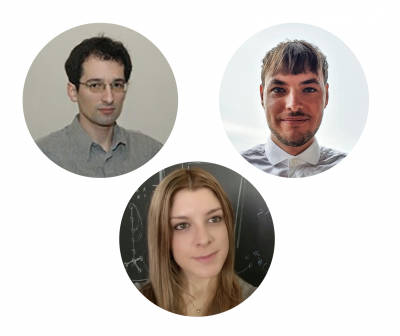
Season 2 – Session 2: Machine learning in simulations
25 November 2021, 15:00-19:00 CET
Gabor Csanyi - Cambridge University
First principles force fields: status and challenges
Featuring Elena Gelzinyte, David Kovacs, James Darby, and Cas van der Oord
Thorben Fröhlking - SISSA
Using machine learning to improve RNA force fields
Silvia Bonfanti - Università degli Studi di Milano
Machine Learning of Metamaterials
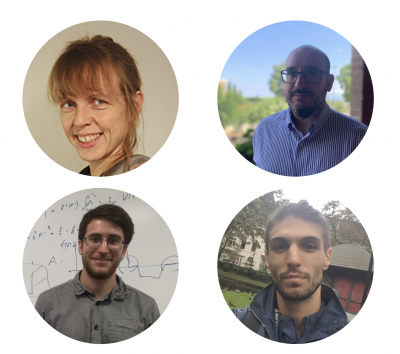
Season 2 – Session 1: Multiscale simulations of complex materials
27 October 2021, 15:00-19:00 CEST
Friederike Schmid - Johannes Gutenberg University, Mainz
Polymer simulations across multiple scales
Nicodemo di Pasquale - University of Manchester
Mori-Zwanzig projection technique in coarse-grained modelling
Javier Diaz - EPFL
Co-assembly of block copolymers and anisotropic nanoparticles
Constantinos J. Revelas - National Technical University of Athens
Multiscale Modeling of Polymer-Nanoparticle Systems
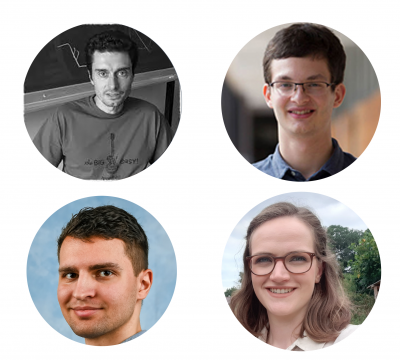
Session 6 - Activated Events
3 June 2021, 15:00–19:00 CEST
Alessandro Laio - SISSA, Trieste
Estimating the free energy: from enhanced sampling to manifold learning
Matej Badin - SISSA, Trieste and Comenius University
Nucleating different coordination in crystal under pressure: Study of B1-B2 transition in NaCl by metadynamics
Eugen Hruska - Emory University
Benchmarking the accuracy of free energy landscapes generated by adaptive sampling strategies
Isabell Louise Grothaus - University Bremen
N-glycan conformers explored by enhanced sampling and machine learning
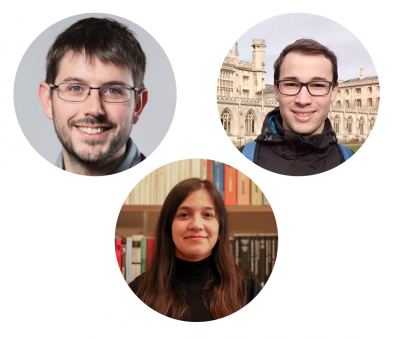
Session 5 - Machine Learning
6 May 2021, 15:00–19:00 CEST
Michele Ceriotti - EPFL, Lausanne
The thin line between physics and data
Dávid Péter Kovács - University of Cambridge
Atomic Cluster Expansion force fields for organic molecules: evaluation beyond RMSE
Yasemin Bozkurt Varolgünes - MPI for Polymer Research
Automated identification of collective variables and metastable states from molecular dynamics data
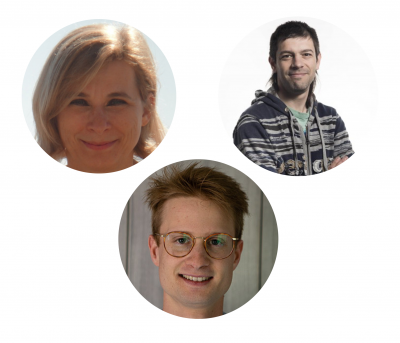
Session 4 - Data Driven Science
8 April 2021, 15:00–19:00 CEST
Claudia Draxl - Humboldt University Berlin
From data to knowledge
Adam Hospital - IRB Barcelona
BioExcel-CV19: a database of COVID-19 related Molecular Dynamics trajectories
Pierre-Paul De Breuck - Université Catholique de Louvain
MODNet: accurate and interpretable property predictions for limited materials datasets by feature selection and joint-learning
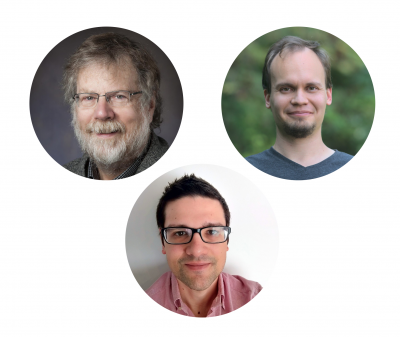
Session 3 - Quantum Monte Carlo
25 March 2021, 15:00–19:00 CET
David Ceperley - University of Illinois Urbana-Champaign
Simulating quantum systems
Juha Tiihonen - Oak Ridge National Laboratory
Prospects of Forces and Geometry Optimization with Quantum Monte Carlo
Michele Ruggeri - CNRS, Maison de la Simulation
Quantum Monte Carlo determination of the principal Hugoniot of deuterium
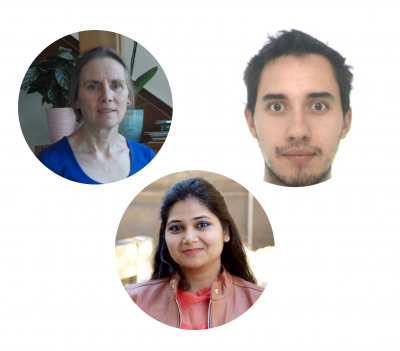
Session 2 - Active Matter
4 March 2021, 15:00–19:00 CET
Julia Yeomans - University of Oxford
Phase field models for mechanobiology
Bruno Ventejou - CEA Saclay
Chirality disorder in the Vicsek model
Supriya Bajpai - IITB-Monash Research Academy
Cell motility and polarity controls notch signaling pathway patterns in active tissues
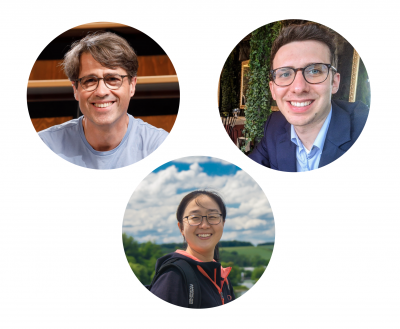

 About
About
